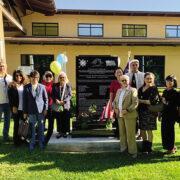THE coronavirus (COVID-19) pandemic is just one more crisis, among the many, that the world has experienced in the 20th century and the present millennium.
Each crisis has been a test of leadership, underscoring the need for a great leader, someone who can rally the citizenry, inspire them and keep up their spirits in the face of discouraging odds. Someone on whose wisdom they can depend on, whose words they can believe, and in whom they can entrust their lives.
Winston Churchill, as newly-appointed Prime Minister of the United Kingdom in 1940, went against the policy of appeasement of his predecessor, Neville Chamberlain, in dealing with Hitler, whose forces had conquered much of Europe. Churchill defiantly declared:
“We shall fight on the seas and the oceans, we shall fight with growing confidence and growing strength in the air, we shall defend our Island, whatever the cost may be, we shall fight on the beaches, we shall fight on the landing grounds, we shall fight in the fields and in the streets, we shall fight in the hills; we shall never surrender…”
These words kept up the spirits of the British people throughout the Nazi blitzkrieg that devastated London and resulted in 32,000 civilian fatalities and 82,000 seriously injured. In the end, they prevailed.
How does President Rodrigo Duterte compare to Churchill in the face of China’s incursions into territory claimed by the Philippines in the South China Sea?
Beijing has claimed nearly all of the resource-rich South China Sea, while Duterte has disregarded a 2016 decision of the Permanent Court of Arbitration in The Hague that China’s claims has no legal basis. In 2016, on a visit to Beijing, Duterte told President Xi Jinping, “We are staking our claim in our economic zone and we will dig for oil in our territory.” At this, Xi patronizingly advised Duterte that it was “better to hold talks first because if you insist on your position, there might be trouble.’”
That could have been Hitler talking to Chamberlain. And, like Chamberlain, Duterte chose to appease the Chinese.
In a speech before the Philippine Navy, Duterte said: “I cannot afford at this time to go to war. I cannot go into a battle which I cannot win and would only result in destruction for our armed forces.”
While Vietnam and Indonesia, which also have claims over sections of the South China Sea, have warned Beijing to back off, Duterte lamely explained, “I had no choice. If I send my navy and my soldiers there tomorrow and start to travel toward them, in a matter of seconds they’ll all explode … they will be slaughtered and the missiles that are parked there will arrive in Manila in about four minutes. Do you want a war?”
Duterte did make snarling sounds when some 200 Chinese ships moved into a disputed area in the vicinity of Pag-Asa island, occupied by Filipinos. Duterte said that he would be forced to send a suicide mission to confront the Chinese. But he was like a mouse warning a dragon to stay away.
On the other hand, the Royal Air Force also went on a virtual suicide mission, bravely engaging the superior Nazi Lutwaffe in the skies over England. On September 15, 1940, the RAF trounced Hitler’s air force, shooting down 56 planes. The Lutwaffe turned tail and the Battle of Britain was won.
Describing the victory, Churchill said, “Never in the history of human conflict have so many owed so much to so few.”
Unfortunately, Duterte is no Churchill, although his supporters insist that Duterte demonstrated true leadership by avoiding a slaughter of the Filipino people. Perhaps. But if Churchill had taken Duterte’s attitude, the United Kingdom would have fallen.
In 1933, Franklin Delano Roosevelt assumed the U.S. presidency at the height of the Great Depression following the 1929 stock market crash. In his inaugural speech, he endeavored to revive the spirits of the American people, not by offering false hopes, but by admitting the harsh facts and laying out his plans for recovery:
“This is preeminently the time to speak the truth, the whole truth, frankly and boldly. Nor need we shrink from honestly facing conditions in our country today.”
Roosevelt then said these immortal lines: “The only thing we have to fear is fear itself!”
Appealing for the “understanding and support” of the citizenry and of Congress, Roosevelt bluntly added: “But in the event that the Congress shall fail to take one of these two courses, and in the event that the national emergency is still critical, I shall not evade the clear course of duty that will then confront me. I shall ask the Congress for the one remaining instrument to meet the crisis–broad Executive power to wage a war against the emergency, as great as the power that would be given to me if we were in fact invaded by a foreign foe.’
During his first 100 days of his presidency, Roosevelt worked to hasten recovery by stabilizing industrial and agricultural production, and mounting massive public works projects that employed thousands. He also reformed the financial system and established a safety net for Americans He created the Securities and Exchange Commission and the Federal Deposit Insurance Corporation, and signed the Social Security Act that provided unemployment and disability benefits and old age pensions for American retirees.
The economy was well on the way to recovery when a recession hit the country in 1937 and again in 1938, prolonging the depression up to the end of the decade.
And then on December 7, 1941, Roosevelt faced another test of leadership when Japan attacked Pearl Harbor. Roosevelt dubbed it “a day of infamy.” But he proved equal to the new crisis.
Compared to him, how has Trump fared in the face of the coronavirus crisis? Here is how one U.S. publication characterized it:
“President Donald Trump’s failure to respond to the coronavirus pandemic didn’t begin with the administration’s failure to provide testing kits needed to tackle the crisis. It didn’t start with Trump’s bungled messaging and and inability to send out the millions of test kits even as the crisis worsened.
“It began in April 2018 — more than a year and a half before the SARS-CoV-2 virus and the disease it caused, COVID-19, sickened people in China — that authorities realized they were dealing with a new disease.
“The Trump administration, with John Bolton newly at the helm of the White House National Security Council, began dismantling the team in charge of pandemic response, firing its leadership and disbanding the team in spring 2018.
“The cuts, coupled with the administration’s repeated calls to cut the budget for the Centers for Disease Control and Prevention (CDC) and other public health agencies, made it clear that the Trump administration wasn’t prioritizing the federal government’s ability to respond to disease outbreaks…The federal government is only now playing catch-up, as thousands of coronavirus infections are confirmed and the death toll steadily increases every day.”
At a time when credible leadership is so urgently required and a leader’s word must be his bond, Trump has also wallowed in lies. And at a time when taking responsibility is proof of leadership, Trump has been notorious for passing the buck.
Asked if he felt accountable for the botched testing process, he replied, “ I don’t take any responsibility at all.” And when asked if he had anything to do with dismantling of the White House National Security Council’s Directorate for Global Health Security and Biodefense, Trump said he did not know about it.
He lied. Sadly, Trump is no Roosevelt.




